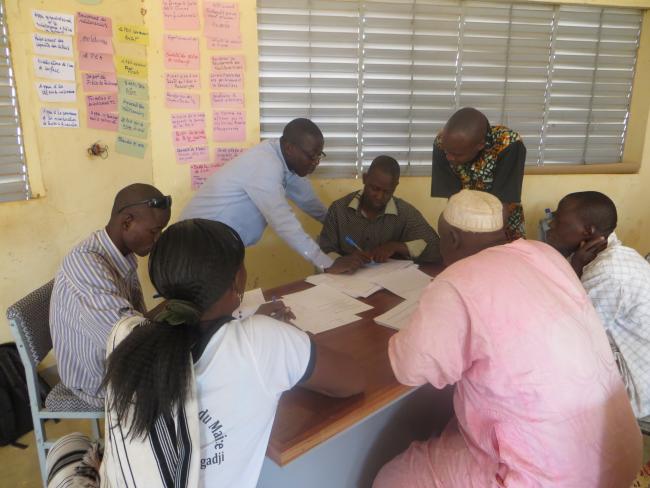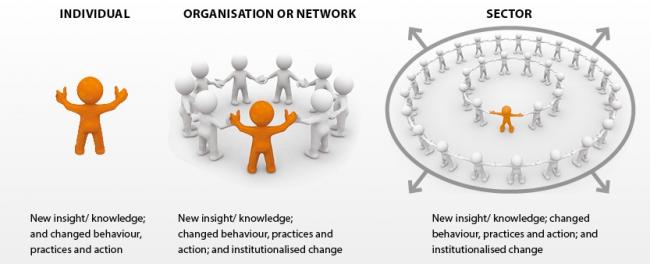UNICEF and IRC start partnership to improve learning in WASH for better services in West and Central Africa
Published on: 15/07/2015

The regional office of UNICEF for West and Central Africa is supporting 24 countries with the implementation of their country WASH programmes. An increasingly important area is support the processes of learning, both in the countries and in the region. Learning from failures in the past, sharing of experiences with innovations, easy access to capacities and information within the region and turning of sector monitoring data into action for better services are all activities captured under the umbrella of sector learning. For IRC learning and sharing in and by the WASH sector has been at the heart of the organisation since it was created in 1968. And over the years a lot of experience has been gathered with supporting countries in improving their information and knowledge management at sector level.
Learning seems to be a natural and logic thing to do and to stimulate when we want to improve performance. But in practice this is often more difficult than first thought. There are often personal barriers, like when learning is associated with class-rooms: "I am a senior officer, I don't need to learn anymore", or with competition: "It is better to keep the information for myself otherwise someone may run with it". Or there are barriers within the organisation. Everybody knows probably how difficult it can be to tap on the organisational track record: "You know the trick was done once in a project before, but where are the documents or who were the partners involved?" At sector level it often becomes even more complicated. We are often already so much occupied with doing our own business that there is often little space to listen to what others are doing. And although we share usually the larger vision of sustainable services for all forever, we all have our own roadmaps and interests which are often not easy to align.

Sector learning refers to processes and mechanisms in place at sector level to ensure that actors are capable of jointly reflecting on current service delivery and identifying problems, developing solutions, and spreading successes. Sector learning goes hand in hand with adaptive management, a structured process of translating learning into action. The UNICEF-IRC partnership will support those countries that are interested in working on these processes and mechanisms. Important areas to work on are:
| Leadership | Change begins when an organisation or individual communicates a vision for continuous improvement of sector performance and the large-scale benefits that will result from it. The process of achieving the vision needs to be facilitated, and requires human and financial resources for documentation, data analysis, information management, meetings and follow-up. |
| Collaboration | Sector learning requires that people be willing and able to do things together, better and differently. It is not only experts who should have a say in the process: all stakeholders bring knowledge and can learn from one another. Strategic partnerships that truly engage the full range of stakeholders can inspire commitment to the goal and help institutionalise learning processes. |
| Government buy-in | Sector learning should be aligned with national processes, and the national government should support it and take the lead. The sector learning framework supports stakeholders in meeting WASH sector challenges and links monitoring efforts to improved policy and practice. The framework describes a joint vision, desired outcomes and major strategies for embedding continuous learning in the sector. |
| Documentation and sharing | Many organisations in the WASH sector fail to document their experiences, and the lessons they have learnt – good or bad – are lost. Documentation is therefore crucial for learning. Face-to-face opportunities for learning are a traditional approach; digital channels are becoming increasingly useful. |
The programme will start with assessing the current practices, capacities and interests to work on sector learning. It will be an interesting journey in which we hopefully learn how to do the obvious.
To learn more about the UNICEF-IRC partnership and sector learning see the resources listed below.
At IRC we have strong opinions and we value honest and frank discussion, so you won't be surprised to hear that not all the opinions on this site represent our official policy.